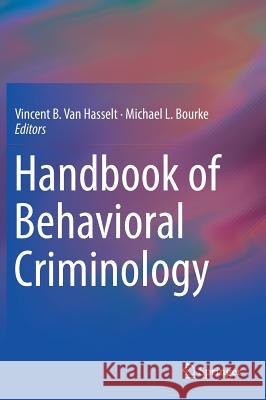Handbook of Behavioral Criminology » książka
topmenu
Handbook of Behavioral Criminology
ISBN-13: 9783319616230 / Angielski / Twarda / 2018 / 762 str.
Kategorie:
Kategorie BISAC:
Wydawca:
Springer
Język:
Angielski
ISBN-13:
9783319616230
Rok wydania:
2018
Wydanie:
2017
Ilość stron:
762
Waga:
1.54 kg
Wymiary:
25.4 x 17.78 x 4.14
Oprawa:
Twarda
Wolumenów:
01
Dodatkowe informacje:
Wydanie ilustrowane











